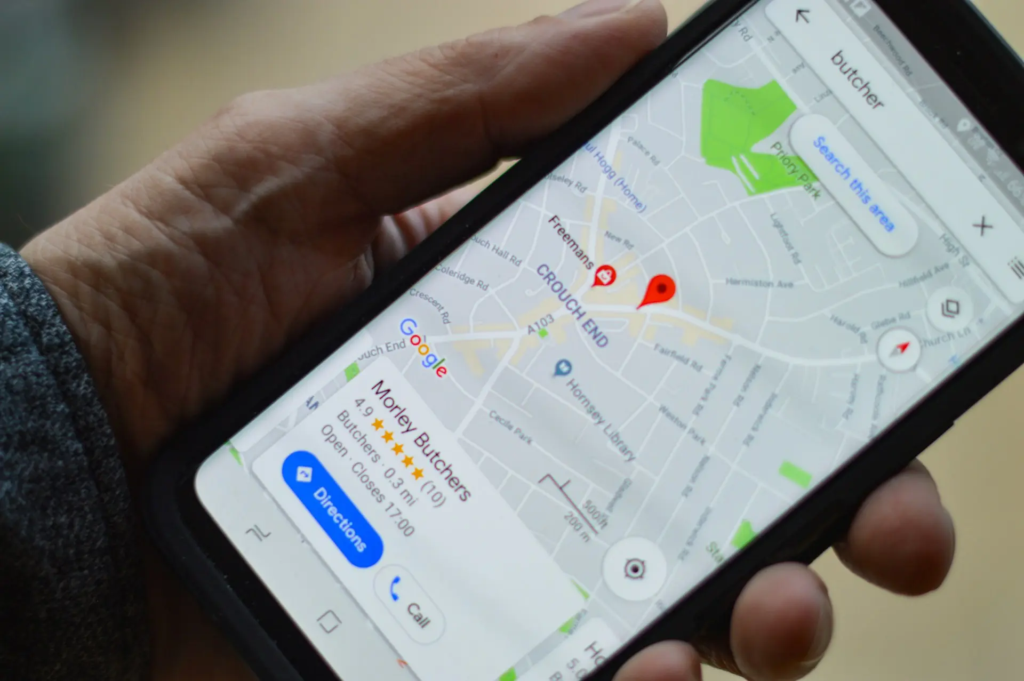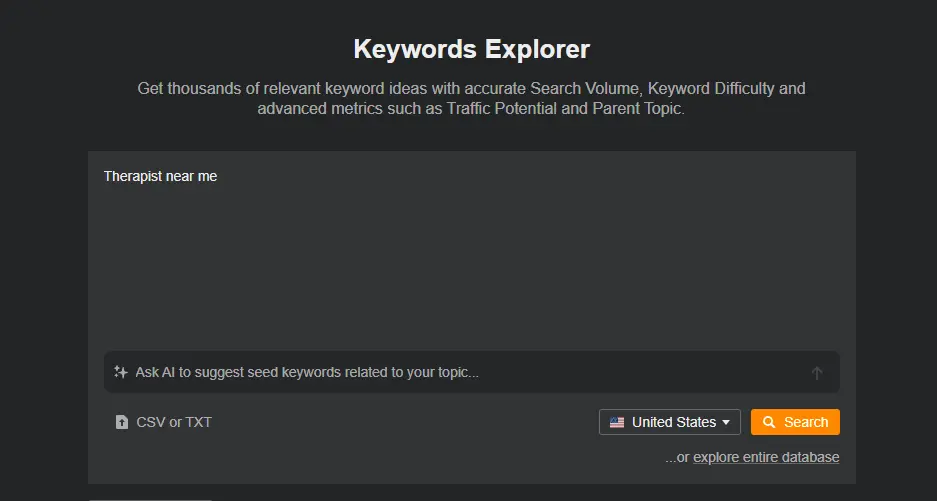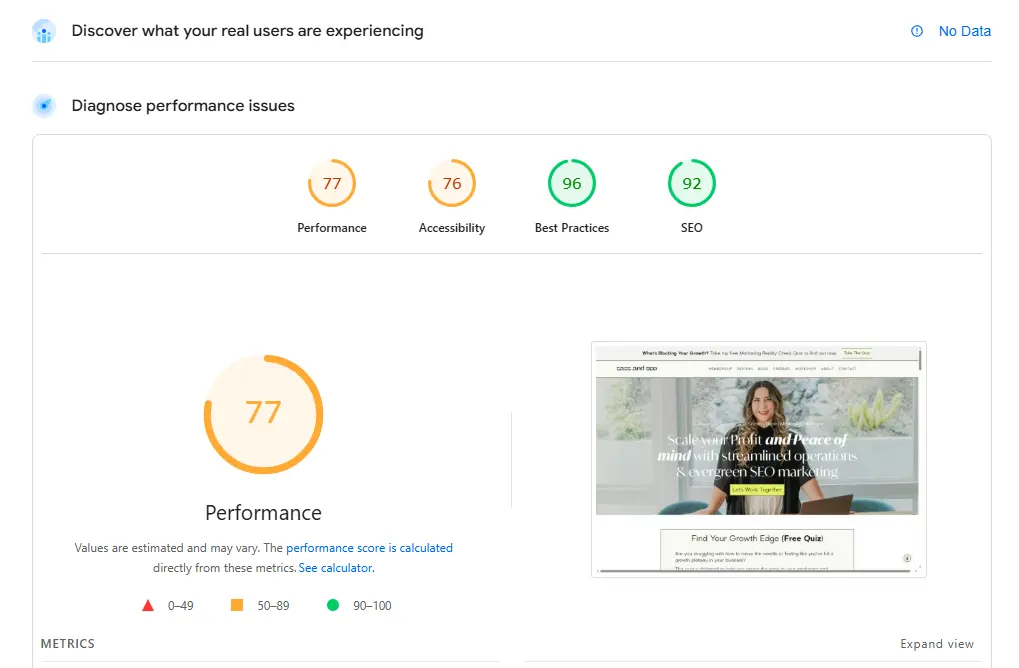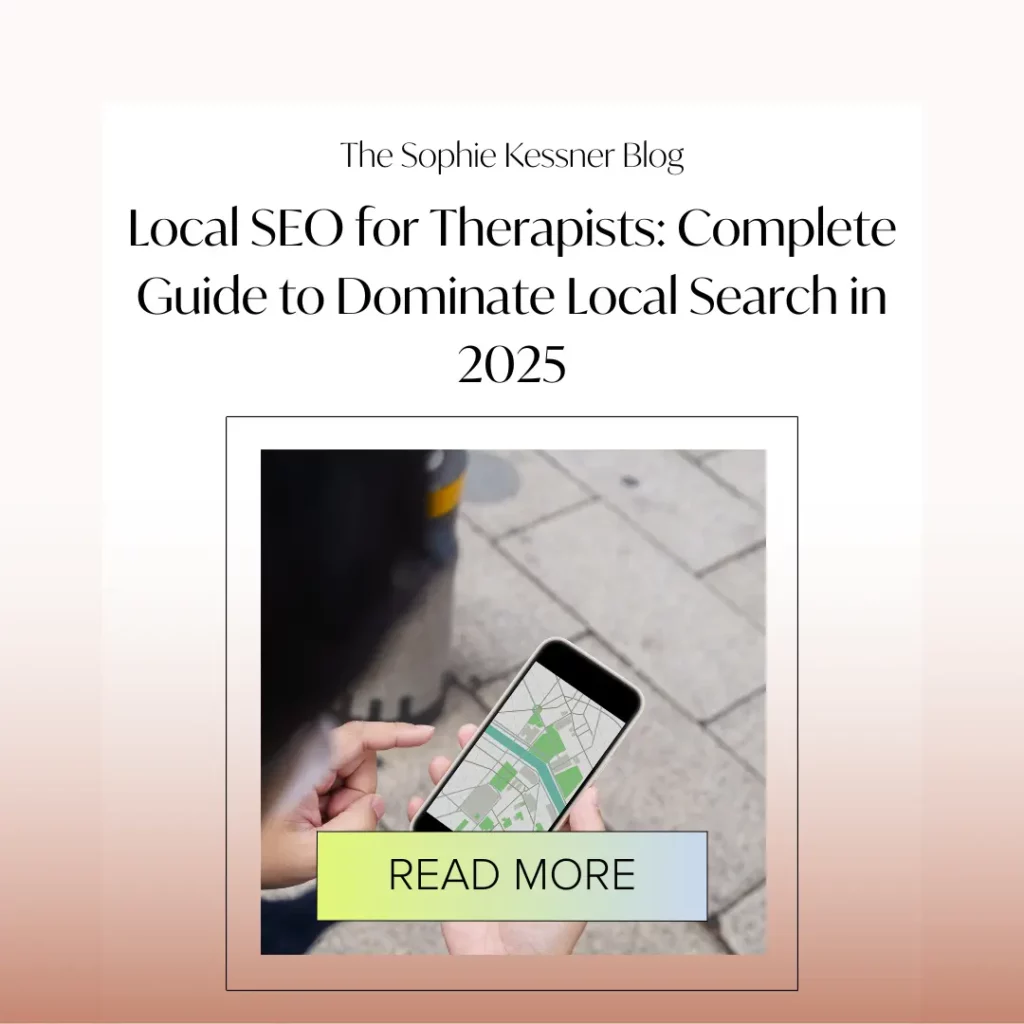Getting your therapy practice noticed by people nearby can feel tricky. Most potential clients start their search online, often using Google search or Google Maps to find a trusted mental health counselor or therapist close to them. Around 23.5% of people find their therapist through an online search, showing just how important local Search engine optimization (SEO) for therapists really is. It’s about making sure your therapy practice appears in local search results when someone looks for therapy services nearby.
Implementing effective SEO strategies is essential to ensure your therapy practice appears as a top search result for people seeking mental health support in your area.
With the right seo strategies, you can improve your online visibility, attract more client inquiries, and build a strong connection with your local audience. Boosting your website’s search engine rankings can help you reach more people who need your support.
Understanding Local SEO for Mental Health Professionals

Local SEO is all about helping your therapy practice show up in search results when people nearby look for therapy services or a mental health counselor. Unlike general SEO, which focuses on ranking anywhere in the world, local SEO targets your local audience — the people most likely to become your clients.
When someone types “therapist near me” or “mental health counselor in [your city]” into Google search or Google Maps, local SEO helps your google business profile and therapist website appear in those local search results. This means more visibility exactly where it matters.
Why does this matter? Because most people looking for therapy want someone close by and easy to reach. In fact, studies show that 46% of all Google searches are local searches, highlighting how important it is to optimize for your community. Plus, nearly 80% of local searches on mobile devices lead to a visit or call within 24 hours. That shows how powerful local SEO strategies can be for attracting new clients quickly.
Local SEO isn’t just about stuffing your site with relevant keywords. It’s a mix of many parts working together:
Optimizing your google business listing with accurate info
Using the right primary and secondary keywords in your website content
Making sure your site speed is fast and mobile-friendly
Building quality backlinks and managing your positive online reputation
Fixing broken links and improving internal links for better navigation
It’s also essential to optimize your local listings, such as Google Business Profile and other directories, to ensure your practice appears in relevant local searches.
All these things tell search engines that your practice is trustworthy and relevant for local searches. When done right, your SEO efforts will improve your search engine rankings on both Google search results and other search engines.
Understanding how search engine processes work for local SEO is the first step to making your therapy practice easier to find. It sets the foundation for everything else you’ll do to grow your online presence and attract more potential clients. Understanding search intent—what potential clients are really looking for—helps you create content and optimize your site to better match those needs.
Google Business Profile Mastery for Therapists
Your Google Business Profile (formerly Google My Business) is one of the most powerful tools for therapists local seo. It’s often the first thing potential clients see when they search for therapy services nearby. Google Business Profile is one of the most important local listings for therapists, and optimizing all your local listings is crucial for local SEO success. A well-optimized profile can boost your online visibility and help you stand out in local search results and Google Maps.
Here’s how to make your google business listing work for you:
1. Complete Your Profile
Fill out every section with accurate, up-to-date information. This includes your practice name, address, phone number, website, and hours. Consistency here is key—make sure your google business profile matches the info on your website and local directories. This consistency helps search engines trust your business.
2. Choose the Right Categories
Select categories that best describe your services, like “Therapist,” “Mental Health Counselor,” or more specific options if available. This helps Google search understand what you offer and match you with the right local searches.
3. Add Photos and Videos
Upload clear photos of your office, staff, and any therapy-related materials. Visuals make your profile more inviting and can increase clicks. Videos, even short ones, can boost engagement and show your practice’s personality.
4. Write a Clear Description
Use your target keywords naturally in your business description. Just like a meta description on your website, your business description should be concise, include target keywords, and clearly communicate your services to attract more clicks from searchers. Explain what makes your therapy practice unique and what types of mental health topics you specialize in. Keep it simple and client-focused.
5. Collect and Manage Reviews
Encourage satisfied clients to leave positive reviews on your profile. Reviews not only build trust but also improve your search engine rankings. Always respond professionally to reviews, showing you value feedback.
6. Use Google Posts
Regularly update your profile with content creation like announcements, blog links, or special offers. This keeps your profile fresh and signals to search engines that your practice is active.
7. Monitor Insights
Use Google Analytics and Google Search Console to track how people find your profile and interact with it. This data helps you adjust your seo strategies for better results.
Mastering your google business profile is a cornerstone of effective local SEO strategies for therapists. It’s a free, easy-to-use tool that can drive more client inquiries and build a positive online reputation in your community.
Local Keyword Research and Content Strategy

Choosing the right keywords is a crucial step in improving your therapist website’s visibility in local search results. Following a thorough keyword research process is essential to avoid common mistakes and ensure you are targeting the right search terms. Keyword research helps you find the terms your potential clients use when searching for therapy services nearby. Using these relevant keywords in your website content and on page SEO tells search engines what your practice offers and where you’re located.
Start with Your Location and Services
Combine your city or neighborhood with therapy-related terms. For example, “anxiety therapist in [city]” or “couples counseling near me.” These are called local keywords and help you target people searching specifically in your area.
Use Long Tail Keywords
Longer phrases like “affordable mental health counselor for teens in [city]” may have lower search volume but usually attract more motivated clients. These long tail keywords are less competitive and can improve your website’s search engine rankings faster.
Use Keyword Research Tools
Tools like Google Keyword Planner, Ubersuggest, or SEMrush can help you find popular target keywords and related terms. Look for keywords with good search volume but moderate competition.
Include Keywords Naturally
Place your primary and secondary keywords in important spots like title tags, meta descriptions, headings, and throughout your website content. Avoid keyword stuffing—write for people first, search engines second.
Create Valuable Content
Develop blog posts or pages around common mental health topics your clients care about. This supports your content marketing strategy and helps your site rank for more search terms. For example, write about “how to find the right mental health counselor” or “benefits of therapy for anxiety.”
Optimize for Voice Search
Many people use voice assistants to find local services. Use conversational phrases and questions in your content that match how people speak, like “Where can I find a therapist near me?”
Update Content Regularly
Fresh content signals to search engines that your site is active. Keep adding new blog posts, updating service pages, and refining your keyword use.
Good keyword research paired with a strong content marketing strategy helps your therapy practice connect with the right people at the right time. It’s a key part of building a strong online presence and increasing client inquiries.
Technical Local SEO Foundation

Technical SEO, sometimes called technical SEO, is the behind-the-scenes work that helps your therapist website run smoothly and rank well in search engine results pages. Not all website designers understand technical SEO, so it’s important to work with professionals who have this expertise to ensure your site is fully optimized. Even if your content is great, issues like slow site speed or broken links can hurt your website’s search engine rankings and turn away potential clients.
Keep Your NAP Consistent
Your Name, Address, and Phone number (NAP) should be exactly the same across your google business profile, website, and all local directories. Inconsistencies confuse search engines and can lower your ranking in local search results.
Fix Broken Links
Broken links on your site frustrate visitors and harm your SEO. Regularly check for and fix any broken links to keep your site healthy and easy to navigate.
Use Schema Markup
Schema markup is a type of code that helps search engines understand your therapy practice better. Adding local business schema can improve your chances of showing up in rich results like maps and reviews.
Optimize Site Speed
A fast-loading site improves user experience and boosts your ranking. Compress images, use reliable hosting, and minimize unnecessary code to keep your web pages loading quickly. This is important because studies show that 53% of mobile users leave a site that takes longer than 3 seconds to load, which can cost you potential clients.
Mobile-Friendly Design
Most local searches happen on mobile devices, so your site must look good and work well on phones and tablets. Responsive design is key to keeping visitors engaged.
Create Local Landing Pages
If you serve multiple areas, create separate pages for each location. Use local keywords and specific info to help each page rank in its own area.
Use Internal Links
Link related pages within your site to help visitors find more information and help search engines understand your site structure.
Work with Designers Who Understand Technical SEO
If you hire web designers, make sure they know the basics of technical SEO. A well-built site supports all your other SEO efforts.
Getting your technical SEO right sets a solid foundation for your local SEO strategies. It helps your site perform well in google search results and makes it easier for potential clients to find and trust your practice.
Optimizing Website Structure for Therapists
A well-structured website is the foundation of effective local SEO for therapists. Start by ensuring your site is mobile-friendly, as most local searches now happen on smartphones and tablets. A responsive design not only improves user experience but also positively impacts your search engine rankings.
Your website should feature a clear and concise navigation menu, making it easy for potential clients to find information about your services, location, and how to contact you. Use header tags to organize your content, and make sure each page has unique meta descriptions and title tags that include relevant keywords.
Technical SEO is also crucial—ensure your website loads quickly, is secure (using HTTPS), and is free of broken links that could frustrate visitors or harm your rankings. Regularly audit your site to fix any issues and keep everything running smoothly.
By optimizing your website structure, you’ll improve your online visibility, provide a better experience for potential clients, and support all your other local SEO efforts.
Review Management and Reputation Building

Reviews are a major part of local SEO for therapists because they build trust and influence how your practice appears in search engine results. Many potential clients check reviews before choosing a therapy practice, so managing your online reputation is key to attracting more client inquiries.
Encourage Satisfied Clients to Leave Reviews
Ask your happy clients to leave positive reviews on your google business profile and other relevant platforms. A simple, polite request after a session can go a long way. Remember, reviews with detailed feedback help more than short ones.
Keep Reviews HIPAA-Compliant
When managing reviews, always respect client privacy and follow HIPAA rules. Never share confidential information or respond in a way that reveals personal details.
Respond to Reviews Professionally
Reply to both positive and negative reviews. Thank clients for their kind words and address concerns calmly and respectfully. Showing that you care about feedback builds a positive online reputation and encourages others to trust your practice.
Use Reviews to Improve Your Services
Look for common themes in feedback to spot areas where you can improve. This not only helps your practice but also shows clients you’re committed to providing quality care.
Leverage Testimonials on Your Website
With permission, share positive client testimonials on your therapist website. This adds social proof and supports your content marketing strategy.
Monitor Your Reviews Regularly
Keep an eye on your reviews across platforms and respond promptly. Tools like Google Analytics and Google Search Console can help track how reviews impact your search engine rankings and online visibility.
Managing reviews well is one of the most effective ways to boost your therapist SEO and build lasting trust with your local audience.
Local Citations and Directory Optimization
Local citations are online mentions of your therapy practice’s name, address, and phone number (NAP). They help search engines verify your business’s location and improve your local search results. Getting listed in the right local directories is an important part of your local SEO strategies.
Choose the Right Directories
Start with major platforms like Google Business, Bing Places, and Yelp. Also, list your practice on therapy-specific directories such as Psychology Today, TherapyDen, and GoodTherapy. These sites are trusted by both clients and search engines.
Keep Your Information Consistent
Make sure your NAP details are exactly the same across all directories and your website. Inconsistent info can confuse search engines and hurt your website’s search engine rankings.
Add Detailed Information
Include your website, hours, services, and a brief description using relevant keywords. The more complete your listings, the better they perform in local searches.
Monitor and Update Listings
Regularly check your directory listings to fix any errors or outdated info. Use tools or services that track your citations to keep everything accurate.
Avoid Duplicate Listings
Multiple listings for the same location can confuse search engines and lower your ranking. Remove or merge duplicates when possible.
Building and maintaining accurate local citations supports your SEO efforts and helps your practice appear trustworthy and professional to both search engines and potential clients.
Local Link Building for Therapy Practices
Building strong backlinks is a key part of SEO strategies that can boost your therapy practice’s visibility in local search results. Local link building means getting links from other trusted websites in your area or related to mental health professionals. These links tell search engines that your practice is reliable and connected in the community.
If you find local link building challenging, you can consider hiring specialized SEO services to help improve your website’s search engine rankings and attract more clients.
Partner with Local Healthcare Providers
Reach out to doctors, clinics, or wellness centers nearby. You can collaborate on blog posts, events, or resource pages and ask for a link back to your therapist website. This builds your network and creates valuable quality backlinks.
Get Involved in Community Events
Sponsor or participate in local health fairs, workshops, or charity events. Local news sites or event pages often link to sponsors or participants, giving you natural backlinks that improve your online visibility.
Join Professional Associations
Being listed on professional organizations’ websites, like state or national therapy boards, adds authority to your site. These links are highly trusted by search engines and help your website’s search engine rankings.
Collaborate with Local Businesses
Work with yoga studios, gyms, or nutritionists to create joint content or referral pages. These partnerships can result in helpful links and introduce your practice to new audiences.
Create Shareable Content
Write helpful articles or guides on mental health topics that local sites want to share. When others link to your content, it boosts your therapist SEO and drives more traffic.
Avoid Spammy Links
Focus on building links naturally from reputable sites. Avoid buying links or using link schemes, as these can hurt your SEO.
Strong link building strategies that focus on your local community help your practice build trust with both search engines and potential clients, leading to more client inquiries and a stronger online presence.
Advanced Local SEO Strategies for 2025
As technology evolves, so do the ways to improve your local SEO for therapists. Understanding search intent is more important than ever, as search engines now use AI to deliver the most relevant search result to users. Staying ahead means embracing new tools and techniques that help your therapy practice connect with the right people in your community.
AI and Machine Learning Applications
Search engines now use AI and machine learning to better understand user intent and deliver more relevant local results. Tools powered by AI can help you analyze your SEO strategies, optimize your website content, and even suggest the best local keywords to target. Using AI-driven platforms can save time and improve your online visibility.
Hyperlocal Targeting Techniques
Instead of just targeting your city, hyperlocal SEO focuses on very specific neighborhoods or communities. This means creating high quality content and local landing pages tailored to smaller areas where potential clients live. Hyperlocal targeting helps you stand out in crowded markets and reach clients who prefer nearby services.
Social Media Integration for Local Visibility
Social media platforms like Facebook, Instagram, and LinkedIn are great for connecting with your local audience. Sharing location-specific posts, events, and client success stories can boost your local SEO efforts. Many social media profiles also appear in local search results, so keeping them active and optimized supports your overall strategy.
Emerging Technologies and Future-Proofing
Voice search, chatbots, and virtual reality are becoming more common in local searches. Optimizing your content for voice queries and using chatbots to answer common questions can improve client engagement. Staying informed about new tech trends ensures your practice remains visible as search behaviors change.
By adopting these advanced strategies, your therapy practice can maintain a strong presence in local search results and continue attracting clients well into the future.
Tracking, Analytics, and ROI Measurement

Measuring the success of your local SEO strategies is essential to understand what works and where to improve. Tracking key performance indicators (KPIs) helps you see how your therapy practice is performing in local search results and how many new clients you’re attracting.
Essential KPIs for Therapy Practice Local SEO
Focus on metrics like website traffic from local searches, number of calls or appointment requests, and your ranking for important local keywords. Monitoring your google business profile views and actions also gives insight into client interest.
Google Analytics 4 Setup for Local Tracking
Google Analytics 4 (GA4) offers advanced tracking features that help you monitor user behavior on your site more accurately. Setting up GA4 allows you to track local visitors, their actions, and conversion paths, giving a clearer picture of your SEO impact.
Conversion Tracking and Patient Acquisition Metrics
Track how many visitors become actual clients by setting up goals for contact form submissions, phone calls, or appointment bookings. This helps you calculate your return on investment (ROI) from SEO efforts.
Regular Audit and Optimization
Review your analytics data regularly to spot trends and identify areas needing improvement. Adjust your SEO strategies based on these insights to keep growing your practice.
Using tracking and analytics tools ensures your local SEO stays effective and supports your goal of reaching more people who need your help.
Conclusion and Action Plan
Building a strong local SEO presence for your therapy practice requires a mix of foundational techniques and advanced strategies. Prioritize optimizing your Google Business Profile, conducting thorough local keyword research, and maintaining consistent local citations. Focus on delivering valuable, location-specific content and managing your online reputation through reviews. Don’t overlook technical SEO elements like site speed and mobile-friendliness, which impact user experience and rankings.
As you implement these strategies, regularly monitor your performance using tools like Google Analytics 4 and adjust your approach based on data insights. Embrace emerging trends such as AI-driven SEO and hyperlocal targeting to stay ahead in 2025 and beyond.
Consistency and patience are key—local SEO is a long-term effort that pays off with sustained growth and stronger connections to your community. At Sass and SEO, we specialize in SEO for therapists and offer a DIY SEO course designed to empower you to boost your local search rankings. Start growing your practice today with strategies tailored just for you!
Frequently Asked Questions (FAQs)
1. What is local SEO and why is it important for therapists?
Local SEO helps your therapy practice appear in search results when people nearby look for mental health services. It’s important because most clients prefer finding therapists close to them, making local SEO essential for attracting nearby clients.
2. How can I optimize my Google Business Profile for better local search visibility?
Complete all profile sections with accurate info, add photos, choose relevant categories, and encourage clients to leave reviews. Regular updates and responding to reviews also boost your profile’s performance.
3. What keywords should I target for my therapy website?
Focus on local keywords combining your services and location, like “anxiety therapist in [city].” Use long-tail keywords to attract specific client needs and include these naturally in your website content.
4. How often should I update my website content for SEO?
Regular updates, such as monthly or quarterly blog posts on relevant mental health topics, keep your site fresh. Consistent content signals to search engines that your practice is active and relevant.
5. Can I manage SEO for my therapy practice myself?
Yes! With the right tools and guidance, you can handle many SEO tasks. Our DIY SEO course at Sass and SEO is designed specifically to help therapists improve their local SEO effectively. If you prefer expert help, you can also hire professional SEO services to manage and enhance your local SEO for you.





